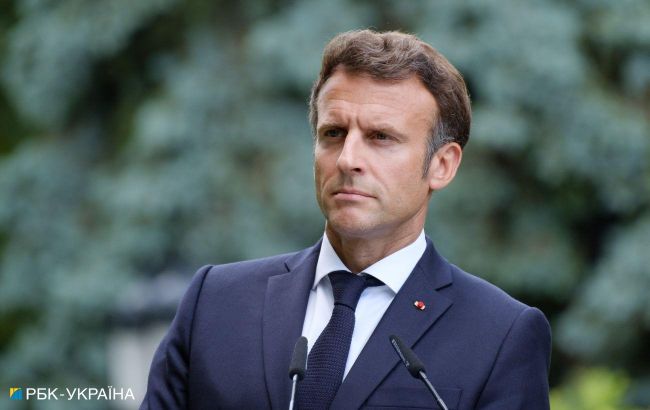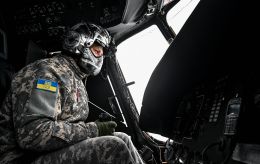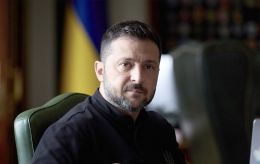Macron increases pressure on Scholz for more decisive position on Ukraine - Bloomberg
 Archival photo: French President Emmanuel Macron (Vitalii Nosach, RBC-Ukraine).
Archival photo: French President Emmanuel Macron (Vitalii Nosach, RBC-Ukraine).
French President Emmanuel Macron is stepping up pressure on German Chancellor Olaf Scholz to take a stronger stance in support of Ukraine, Bloomberg reports.
Earlier, Macron warned of the existential threat that Russia poses to the European Union.
The leaders of France and Germany will meet with Polish Prime Minister Donald Tusk in Berlin today to discuss how best to assist Ukraine, especially with military equipment.
Ukraine's army lacks the ammunition to deter Russia's offensive. For their part, European countries have struggled to maintain unity, arguing over what equipment to provide and whether to consider sending troops to Ukraine.
Macron seeks to take leading role in Europe
Two weeks ago, Macron sparked tensions with allies by saying that nothing could be ruled out when asked about sending troops to Ukraine. He argued that strategic ambiguity was necessary to deter Russia.
Scholz and the White House quickly rejected this option, and dictator Vladimir Putin said that NATO "risked unleashing a nuclear" conflict if it sent troops to help Ukraine.
The agency points out that Macron is seeking to take a leading role in Europe in supporting Ukraine. Earlier, he organized a summit of leaders in Paris, where countries agreed on a plan to supply much-needed ammunition to the Ukrainian army outside the European Union.
Last week, he sent his top diplomat to Lithuania to seek support from the Baltic states, which praised his statements.
Scholz under pressure
At the same time, Scholz has been criticized for refusing to grant Ukraine's request for long-range Taurus cruise missiles. Instead, the chancellor emphasized that Germany is a country that provides a lot of assistance to Ukraine.
Polish Foreign Minister Radoslaw Sikorski praised Germany's bilateral assistance to Ukraine and called on Berlin to do more.
"While the meeting in Berlin won’t be a game changer, it is the last chance for Scholz and Macron to mend fences ahead of decisive months for Ukraine, June’s European Parliament elections and the appointment of a new NATO leader," the article says.
Deployment of foreign troops in Ukraine
At the end of February, French President Emmanuel Macron did not rule out the possibility that NATO might send troops to help Ukraine. However, there was no consensus at the time.
Later, Macron clarified that French troops could be sent to Ukraine if Russian troops attacked Kyiv or Odesa again.
Some NATO countries opposed this idea, including Germany, Czechia, Bulgaria, Poland, Spain, and Italy. At the same time, some countries are ready to consider such a possibility, including Lithuania, Latvia, and Estonia.
Estonian Prime Minister Kaja Kallas supported Macron's idea and said that the readiness to send troops to Ukraine is a signal to Russian dictator Vladimir Putin.

